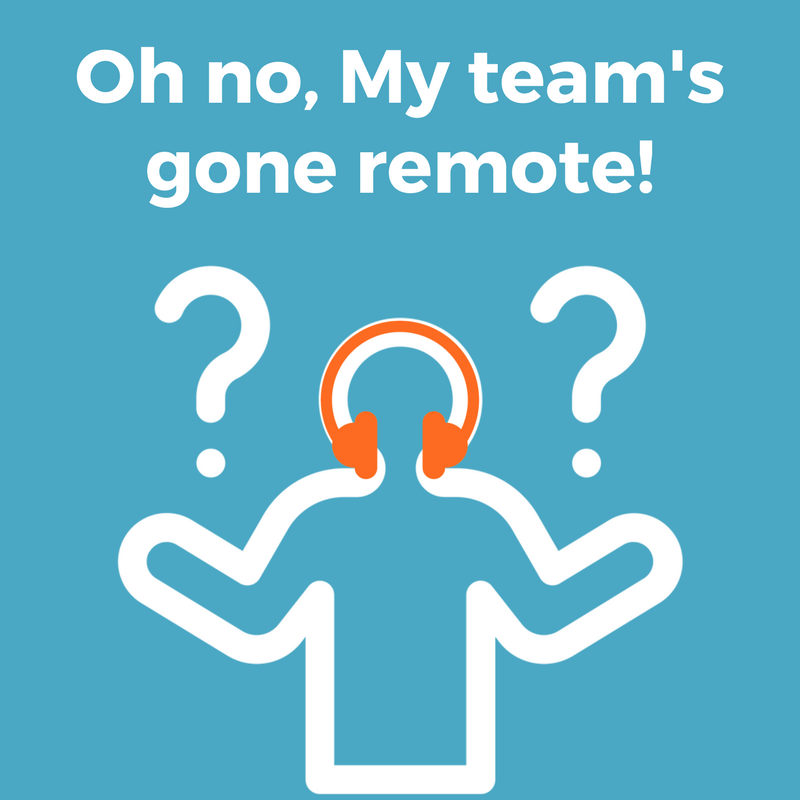WLP197 Agility in Remote, from Authorship to Approach
Welcome back,
We are looking forward to a major milestone - can you contribute to our 200-episode anniversary show? We’d like to hear about your celebrations, within your team/community… Please send your words or even audio to Pilar so we can celebrate celebrations together! We love to hear from our listeners, and bring multiple voices and points of view onto the show whenever we can.
We have some great conversations on Twitter too, like this one where we discussed changes in Microsoft Teams, some of which concerned us - like the introduction of ‘ethical walls’, to separate people in different teams and prevent them from using the platform to collaborate. What do you think? We were thrilled to get a reply from Justin Morris who helps people professionally with adoption of Microsoft Teams, and he even made a video reply - which definitely helped us to understand the potential compliance and conflict of interest issues.
Pilar has also been guesting on the Distant Job podcast with Luis Magalhaes, where they had a great conversation about visible teamwork - and feedback you might not have expected. Do check it out for a great listen. And thank you for recommending us, Bart Van de Roey, on LinkedIn (as part of a very interesting conversation about the pros and cons of distributed working, thanks too to LinkedIn for the inline translation tools!).
We’re keeping an eye on Google Podcasts and their transcript creation ideas (as discussed on the Libsyn podcast The Feed), anything which brings us to a wider audience - do tell us how you catch our show (or if there’s anywhere else we should be).
Mark Kilby
16.48 The Voices Behind the Book: Mark Kilby and Johanna Rothman “From Chaos to Successful Distributed Agile Teams”
We have been waiting for this one to be published for a long time, and you definitely don’t need to be an Agile practitioner to benefit greatly from it. Mark is an Agile coach and long term friend of this show and Johanna’s background is in product development, where she consults and writes prolifically. Software development is often seen as challenging for online collaboration, but the authors felt strongly that there were lots of strategies worth considering, and case studies that many could learn from.
Johanna Rothman
Practical industry issues include timezone overlap, or lack of - and balancing the iteration of the work with the cadence of the regular checkpoints and milestones. Scrum is all about fixed timeboxing, and needs some flexible thinking to apply to a team who cannot all work at the same time - but it can be done. The Agile approach of experimenting and exploring and keeping what works, applies well to optimising these rhythms.
They’ve also written a great article about how they wrote the book as remote collaborators, “You Have to Say More There: Effective Communication in a Distributed Agile Team”, which resonated significantly for the Virtual Not Distant team, and is a highly worthwhile read on its own. Their approach led to a really close collaborative process mostly writing and editing synchronously in real-time, producing a highly consistent and unified tone of voice for the book as a whole, even though they brought different stories and experiences to each element of the content.
Mark and Johanna delve into the feedback and consultation process, and the LeanPub approach for writing and getting feedback fast - an Agile framework for creating content, that helped ensure the book truly reflected the needs and truths of its audience. And the conversation on tools leads into the bigger one we’re continually having about the tech ecosystem itself - and to another great article from Mark and Johanna For Distributed Agile Teams, It’s Not All about the Tools (because it’s so much more about the why behind the tool than the what).
The Agile mindset clearly has a great deal to offer to remote teams on so many levels. Do check out the From Chaos to Succesful Agile Distributed Teams, which is available from all the usual places, and of course keep up with Mark and Johanna via their respective websites (you can sign up for Mark’s newsletter on his site).
1.08.46 Oh no, my teams gone remote! And how will I rally the troops?
We all have different mental models of the typical leader. (Pilar mentions one she observed in the TV series Bad Banks.)
One leadership archetype we often think of is the ‘hero’. The charismatic, inspiring orator, delivering team-talks which get everybody enthused to action - but this might not easily translate to the online space. If we rely on that group energy to pump up the motivation with our personal passion, it just won’t work so well (though there are routes to this, for example high quality video).
A mindset shift to being an enabler within the team and a champion of the team, relating to our colleagues as individuals rather than a mass to be moved collectively, is needed. We have to make use of all the channels and tools we have at our disposal to connect effectively and tap into what motivates each person, as part of our leadership role, and our management practice.
If you like the podcast, you'll love our newsletter:




